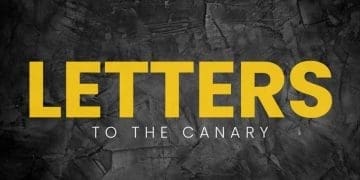This article was co-authored by Karen Bell, senior lecturer in Human Geography and Environmental Justice at the University of the West of England, Bristol.
Recent Extinction Rebellion climate protests included a rally of trade unionists in Trafalgar Square. And this inclusion reflected its message that “the labour and environmental struggles are inextricably related”. Martin Empson – who helped gather participants from branches of the NEU, the PCS, and Unite – says “many trade unionists are concerned about the environment”. And he stresses that the meeting was set up to destroy the “crude stereotype” that is sometimes portrayed of the working class and poor people not being environmentally conscious.
Capitalism and Britain’s role in the climate emergency
Empson, who recently launched his new book System Change Not Climate Change, says there is a slow but definite shift in the climate debate towards the subject of inequality and the capitalism-enabled class divide. In his book, he argues that this was one of the leading causes of man-made climate breakdown detected during the Industrial Revolution.
“We have to argue that the way climate change impacts on the world is driven not by us as individuals, but actually by the structure of society, by the structure of our economies,” Empson says, adding that the UK is responsible for over 5% of historic greenhouse-gas emissions. “Britain has gained its wealth and position in the world economy as a result of historic emissions, and partly in fact by stripping its previous colonies bare of resources and people – a hundred more people in Britain will have far more impact than say, a hundred more people in Sub-Saharan Africa.”
On paper, the UK today is emitting approximately 1% of carbon-dioxide emissions. However, the Carbon Tracker Institute has also suggested that, if offshore activities and the impact of financial structures are counted, the City of London itself supports a minimum of 15% of the world’s carbon footprint. We also have to take into account that many of our emissions are outsourced, as the products we consume are manufactured elsewhere and not accounted for in the UK.
The impact of inequality
At the same time, we have very high levels of inequality. And this is linked to a larger carbon footprint. In 2018, Danny Dorling, a professor of human geography at Oxford, found that inequality in the UK is greater than any other country in Europe. Dorling’s study of high-income countries shows that greater levels of inequality within a country tend to correlate with eating more meat, using more water, and producing more waste – all of which lead to a larger ecological footprint than more equal societies.
This is echoed by an Oxfam report in 2015 which estimated that the average greenhouse-gas emissions resulting from the consumption of a person in the poorest half of the global population is 11 times less than the average footprint of someone in the richest 10%. In short, the poorest people are the least responsible for climate breakdown and yet the most vulnerable to it.
The habits of the wealthy often influence those that are less well-off, who aspire to a similar lifestyle. Ange, a working-class woman who was interviewed for Working-Class Environmentalism: an Agenda for a Just and Fair Transition to Sustainability — a book set to be published in November — expressed her thoughts on the consumerist loop she is finding herself in. “We buy things that we don’t really need,” she said. “[These items] give you the strong desire that you need to buy and if you don’t, you feel poor.”
The habits of wealthy elites
On the other end of the spectrum, the richest individuals not only engage in greenhouse-emitting activities such as super-yachting, building luxury homes, and jet-setting, but are also able to broadcast their luxury consumption, which is sometimes ‘greenwashed’ to protect their reputation. A 2019 paper estimates that the construction and use of these items in the US alone “is likely to create a CO2 footprint that exceeds those from entire nations”.
Take Gisele Bündchen, for example, who’s a UN Environmental Programme Goodwill Ambassador. She promotes eco-friendly products. She supports Earth Hour. And she’s even funded tree planting in the Amazon. But that’s just her ‘green’ side. Her day job, on the other hand, requires her to model for fast-fashion brands such as Dior; and her personal life involves luxury homes and jet-setting on the $50m Gulfstream G550 she owns, which is harmful to the environment. In fact, the super-wealthy are reportedly set to buy thousands of new private jets over the next ten years. These, the Guardian says, “will burn 40 times as much carbon per passenger as regular commercial flights”.
The more equality, the healthier the planet
Inequality generates insecurity. And the advertising industry mercilessly plays on this, hooking people into buying – sometimes for social approval, and in some cases simply to belong. But such habits are the results of an unequal society, not individual inadequacies.
Only by implementing policies that address inequality can we live within the limits of the planet. By doing so, not only will we have a more equal society, but we’ll have a healthier and happier one too.
Featured image via Flickr – where to here











